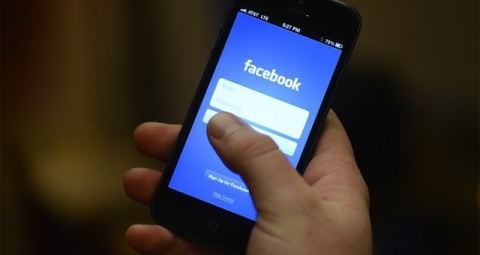
"We not only have to deliver news differently, but we have to write it differently," argues ICFJ President Joyce Barnathan.
As the head of the International Center for Journalists, I constantly try to assess the future of our field. The technology is evolving at a dizzying rate, transforming everything about our profession. I now own an Apple Watch, so I can talk from experience about "glance journalism" and "snackables," bite-sized pieces of information that appear regularly on my wrist.
But what interests me most now are not the appetizers or the new gadgets, but the new voice of journalism. After attending cutting-edge conferences put on by the World Association of Newspapers and the Global Editors Network, I came away with a strong impression that we not only have to deliver news differently, but we have to write it differently.
"Young people," said blogger Leo Prieto at the WAN-IFRA gathering, "don't like the artificial impartiality of traditional journalists." Added Robert Picard of the Reuters Institute: "Young people don't like the journalism style."
Young people don't like the artificial impartiality of traditional journalists, says blogger Leo Prieto. They want a new voice. #wnc15
— Joyce Barnathan (@icfjoyce) June 1, 2015
As a traditional journalist, I was baffled. What are these people talking about? How should we write differently? Over and over again, speakers hammered home that millennials wanted more passion. Does this mean that tomorrow's journalists should be more partisan, voicing a strong point of view rather than a balanced perspective? I don't think that's it. I do think what's called for is a new form of storytelling.
In the age of establishment newspapers and the network nightly news, journalists used to adopt “the voice of God,” as one panelist put it—or at least to write in a detached way that sounded less opinionated, more reliable. As a young reporter, I was constantly told to keep myself out of my stories.
It's clear that digital natives communicate differently. Sixty-one percent of millennials get their news about politics and government from Facebook, according to a Pew study. They want content that feels relevant for them. No wonder major news organizations are partnering with Facebook. CNN is producing special editions for Snapchat, including one called The Poor Kids of Silicon Valley. Even the staid old Beeb—the BBC—is producing online videos designed to be more engaging and personal.
61 percent of millennials get news about politics and government from Facebook; boomers get it from local TV, says Pew #wan15
— Joyce Barnathan (@icfjoyce) June 1, 2015
I think this kind of engaging journalism made the recent podcast "Serial," my favorite journalism breakthrough last year, so successful. Reporter Sarah Koenig used all of her journalism skills to tell a story in real time about a murder case that took place 15 years ago. Journalists usually tell stories once they've completed their reporting. Instead, Koenig took her listeners with her as she looked into this case. She asked the hard questions. She revealed her inner thinking. She was probing, yet personal and passionate.
Her audience found her exploration gripping. Indeed, as she told the stories, listeners contacted her with more information, including evidence that could be material for the case. In other words, she also crowdsourced her piece, deliberately or not, using the audience to provide grist for future episodes. Though the series ended inconclusively, young people listened in droves.
In this case, the reporter’s quest was at least as compelling as what she found out. That suggests a new age of journalism in which the storytelling itself adds to the legitimacy of the news.
So if you thought all you needed to do as a journalist in the new era was learn to post photos on Instagram, tweet constantly and share stories on Facebook, think again. We're also redefining the rules of news writing and narrative journalism, and we're just at the beginning of the story.
Main image CC-licensed by Flickr via Maria Elena.